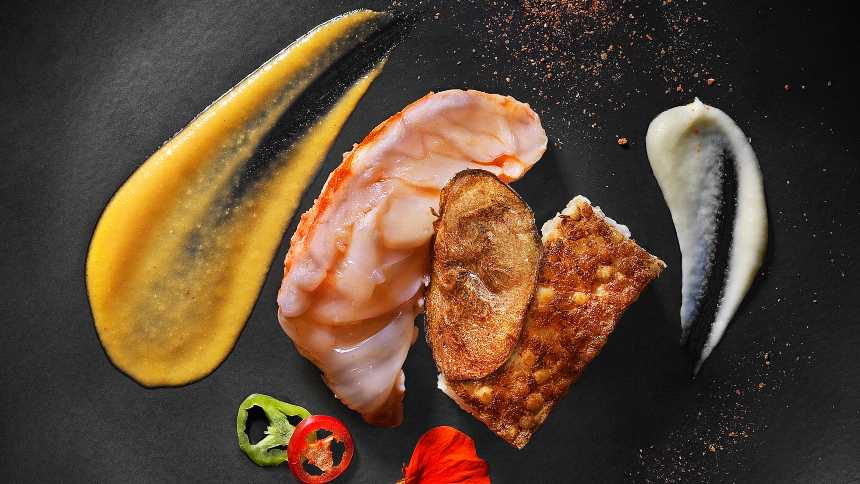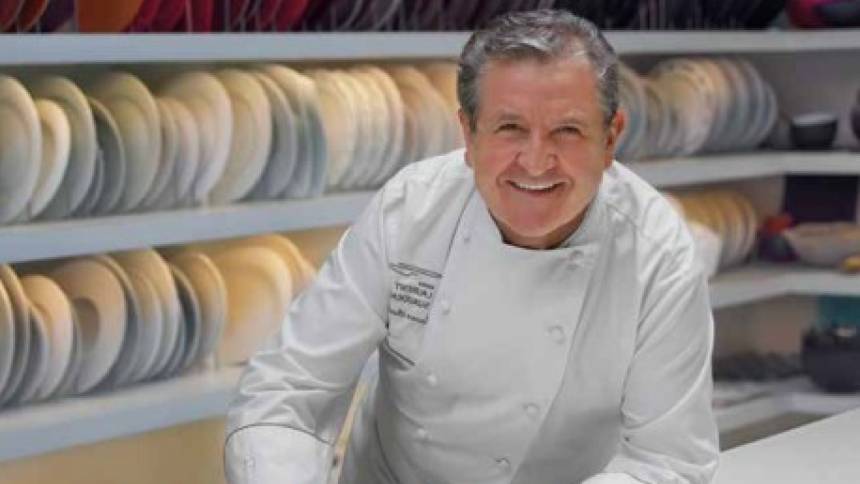Anyone who sees Chef Laurent Soudeau, 66, always so serious and focused and averse to unnecessary exposure, cannot imagine him, with tanned skin and bare feet, playing freely in the hot sand of southwest France, for months on end.
From the outgoing boy on summer vacation at his grandparents’ beach house to the disciplined cook respected by everyone in Brazilian gastronomy, there was only one thing in common: the desire to always be close to the pans.
“The first memory I have of ‘cooking’ is that of making ‘pancakes’ made of sand and gravel in aluminum pans and distributing them to our neighbors in Cholet,” Laurent says in his memoirs. chef’s touch, It was officially launched in October by publisher Melhoramentos.
Cholet is his hometown, where family members still remember him when he was five years old, saying he wanted to be a cook on a ship.
One of the most – if not the most – respected chefs in Brazil, Laurent in the 1980s, along with colleagues such as Eric Jacquin, Claude Trosgros and Emmanuel Basoli, led the movement for the use of Brazilian ingredients in haute cuisine and the valorization of Brazilian cuisine. Occupation.
When he arrived in Brazil in 1979 to head the kitchen at the Le Saint Honoré restaurant in the Meridien Hotel in Rio, on the recommendation of Sir Paul Bocuse, being a chef “didn’t mean anything”. Just as the use of tucupi, jabuticaba, cassava or tapioca was out of the question in the recipes of the wealthier classes.
Working with local ingredients with refined French techniques, he has paved the way for names like Alex Atala, Rodrigo Oliveira and more recently Onildo Rocha to pave the way for appreciation of Brazilian cuisine.
Although he has been away from his daily restaurant work for more than 20 years, Laurent has not given up his dolman. At 9 a.m. the day after the first signing of the book, written during the pandemic, he had already taught at the culinary arts school that bears his name, in São Paulo, and would remain active in the kitchen until the evening.
“I’ve never cooked so much,” he asserts, and today he has just seven people to help with classes, consultations and special events.
With this pace and understanding of the work he hates the best chef ratings. “I hate word lists. It gives me goosebumps. We’re here to do our best, not to be the best at anything.”
See below key excerpts from Laurent’s interview with Newfeed, In it he talks about the evolution of the gastronomy market over almost 50 years in Brazil and what still needs to change.
I have always worked to highlight Brazilian ingredients in the finest restaurants. Has “culinary illiteracy,” as you once knew it, evolved in recent decades?
The relationship with Brazilianness has changed, and it is well absorbed by a younger segment of the population. Which is very encouraging. But, even with all the efforts of chefs like Onildo Rocha, Rodrigo Oliveira, and Felipe Scheidler, this is still in its infancy, especially compared to other Latin American countries, such as Peru, where a large portion of the middle and upper classes are highly skilled. The secret relationship with gastronomy. It is a very strong cultural identity that has been internalized and defended. This does not happen in Brazil.
How to change this?
Promoting Brazilian cuisine necessarily involves regional cuisine. Few countries in South America offer such a diverse and regionally rich palette and this must be preserved. Chef Paolo Machado has done a great job promoting Pantanal cuisine. I remember that when I arrived in Brazil they said that Brazilian cuisine was feijoada. I can’t agree with that. But this vision has already passed.
“When I arrived in Brazil they said that Brazilian cuisine is feijoada. I cannot agree with that. But that is a vision that has already ended.”
I first put tocopi on the list in the early 1980s and to this day a lot of people still don’t know about it or still turn their nose up at it. Does this discourage you?
Introduce the habit of eating slowly. Like any cultural process, it takes time to become an integral part of society. There is still a lot of work to be done, but building Brazilian cuisine should make it happen.
After so many years in Brazil, how do you define Brazilian cuisine?
Since the country is large and knowledge of regional cuisine is still sparse, it is difficult to get a definition. It will be necessary for schools to take a deeper look at regional identity in relation to components and absorb local techniques and gestures to apply them within the teachings in a reflective way. It is a huge task, which is starting to be carried out individually by some chefs, but it must be done institutionally in order to be transferred to young chefs.
Many chefs have invested heavily in field research to support their work in their kitchens. Is this the way to accelerate development?
I think this is great. And it must continue. But everyone talks about the Amazon while we have the Serra da Mantiqueira next door, which is very rich. You don’t have to go that far to seek knowledge. You need to work with what is available around you. There is still much to be explored in local research work. In São Paulo, there are people who don’t know what camposí is.
In a way, guides like Michelin and awards like 50 Best have helped spread the word to the world about the work being done here. What do you think of these posts?
These are individual promotions for chefs and restaurants and not for the culinary art as a whole. These are expressions of rejection and immediacy that generate competition and frustration. I don’t think there’s more room for that. I hope they finish. our road It’s much deeper, and it’s not technical. It is closer to engineering and science than to the arts. Lots of it [Auguste] Escoffier said in 1898 that cooking is an applied science. We are here to feed people and make them happy.

But wouldn’t being listed among the best in the world help attract customers?
I hate the word “list”. Gives me goosebumps. We’re here to do our best, not to be the best at anything. I think it is useful to analyze a person’s actual work in their kitchen, and how much it has helped multiply and promote the art of gastronomy from a marketing perspective, but not in the way it is done. It amazes me that we still have so few voices against these systems. But it will grow, you can be sure.
When I arrived in Brazil, there were no culinary schools and the workforce was poorly educated. Today, the social and cultural profile of chefs has changed, and the investment in training and base salary for the category often does not keep pace. How to equalize this mismatch?
This is the big challenge. The training model we still have is a post-war legacy and needs to be reviewed. The audience I serve in school, for example, [foram mais de 23 mil alunos em 23 anos] These are people who often already have a business, but don’t understand it road. They come to take the course, but they don’t bring with them their cooks, who will be getting things done on the stove.
What would be the ideal model?
We need to find a model that allows the executive chef, not just the entrepreneur, to develop. We can’t leave this guy out. The two sides that complement each other need to be evaluated.

“Wannabe internet buff. Future teen idol. Hardcore zombie guru. Gamer. Avid creator. Entrepreneur. Bacon ninja.”

